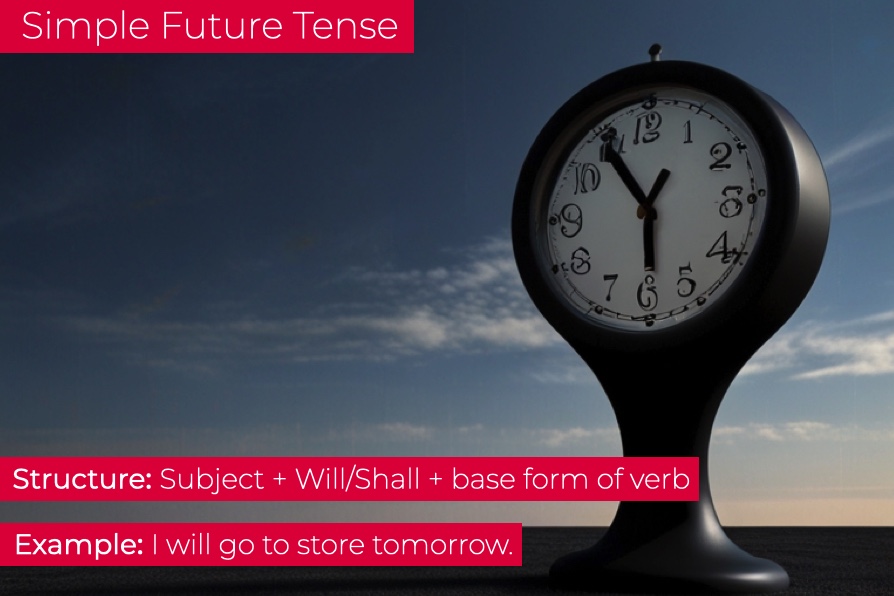The simple future tense is used to describe actions that will happen at a later time. It helps us talk about future plans, predictions, promises, and more. Here’s a detailed look at how it is used, when it is used, and some examples and exercises to illustrate its application. While simple past tense is about the past and simple present tense is about habits, this tense is about upcoming things.

Understanding Simple Future Tense
The simple future tense is used to describe actions that will happen at a later time. It helps us talk about future plans, predictions, promises, and more. Here’s a detailed look at how it is used, when it is used, and some examples to illustrate its application.
How It Is Used
The simple future tense is formed using “will” or “shall” followed by the base form of the verb. “Will” is more commonly used in modern English, while “shall” is often used with “I” and “we” in formal contexts.
Affirmative Sentences
- Subject + will/shall + base form of the verb
- Example: I will go to the store tomorrow.
Negative Sentences
Negative sentences are formed by adding “not” after “will” or “shall.”
- Example: She will not (won’t) attend the meeting.
Questions
Questions are formed by placing “will” or “shall” before the subject.
- Example: Will you join us for dinner?
When It Is Used
Future Plans
The simple future tense is used to express plans or decisions made for the future.
- Example: We will visit our grandparents next month.
Predictions
It is used to make predictions about what might happen in the future.
- Example: It will rain tomorrow.
Promises and Offers
The simple future tense is used to make promises, offers, or threats.
- Example: I will help you with your homework.
Spontaneous Decisions
It can also be used for decisions made at the moment of speaking.
- Example: I’m hungry. I will make a sandwich.
What’s your English level?
Discover your level now: A1/A2/B1/B2/C1/C2 and GET your certificate!
Examples of Simple Future Tense
Affirmative Sentences
- They will travel to Italy next summer.
- He will start his new job on Monday.
Negative Sentences
- I will not (won’t) forget your birthday.
- We will not (won’t) be late for the meeting.
Questions
- Will you come to the party?
- Will she finish the project on time?
Simple Future Tense Exercises
Convert the following sentences into the simple future tense:
- She (go) ______ to the dentist next week.
- They (not/attend) ______ the conference.
- He (buy) ______ a new car soon.
- (you/visit) ______ your parents this weekend?
- We (finish) ______ the report by tomorrow.
Answers
- She will go to the dentist next week.
- They will not (won’t) attend the conference.
- He will buy a new car soon.
- Will you visit your parents this weekend?
- We will finish the report by tomorrow.
Understanding the simple future tense is crucial for effective communication about future events. By mastering its forms and uses, you can clearly express your plans, predictions, and promises.





